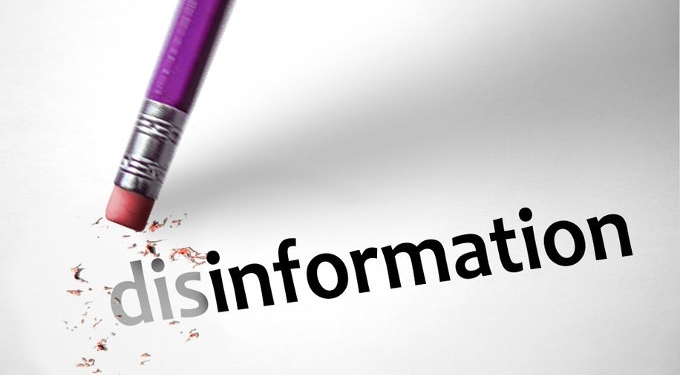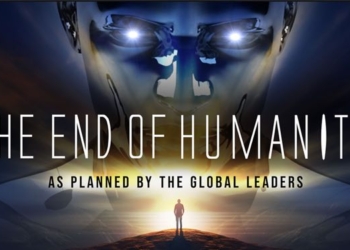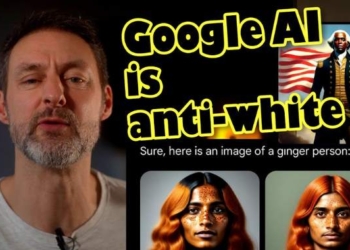
By Dr. Joseph Mercola | mercola.com
STORY AT-A-GLANCE
- The Lancet and Nature have both promoted the natural origin theory for SARS-CoV-2 and protected the theory by refusing to publish counterarguments and/or publishing scientific statements by individuals with serious conflicts of interest
- The Lancet’s COVID-19 Commission included Peter Daszak, Ph.D., president of EcoHealth Alliance, a nonprofit organization that collaborated with various universities and organizations on research in China, including the Wuhan Institute of Virology (WIV). He was recently taken off the Commission due to controversy over his large number of conflicts of interest
- The Lancet’s COVID-19 Commission also includes Danielle Anderson, an Australian WIV virologist who left Wuhan shortly before the pandemic broke out. Anderson says she “does not believe” the virus is manmade. Anderson’s Commission biography does not mention that she worked at the WIV
- In January 2021, 14 global experts submitted a letter to The Lancet in which they argued that “the natural origin is not supported by conclusive arguments and that a lab origin cannot be formally discarded.” The submission was rejected with the justification that the topic was “not a priority” for the journal
- Richard Horton, the editor-in-chief of The Lancet is now being criticized for his long defense and support of the Chinese regime and is accused of using The Lancet to pursue political causes and stifle scientific debate
More than a year ago, in February 2020, a group of 27 scientists wrote a letter published in The Lancet condemning “conspiracy theories suggesting that COVID-19 does not have a natural origin.”1
Although The Lancet — like other medical journals — requires contributors to disclose financial or personal interests that might be viewed as possible conflicts of interests with their submissions, the 27 authors declared they had “no competing interests.”
June 21, 2021, The Lancet published an addendum admitting that “some readers have questioned the validity of this disclosure, particularly as it relates to one of the authors, Peter Daszak.”2
As a result, The Lancet asked the 27 signers to “re-evaluate” their competing interests and to declare any “financial and non-financial relationships that may be relevant to interpreting the content of their manuscript.” So far, Daszak has updated his previous claim of having no competing interests to include a 416-word disclosure statement clarifying that, indeed, he had several conflicts of interest.
First, he is the president of EcoHealth Alliance, a nonprofit organization that receives funding from a “range of U.S. Government funding agencies and non-governmental sources.”
Second — and most importantly — Daszak also explained that, although its work with China is currently unfunded, he and the Alliance have collaborated with various universities and organizations on research in China, including the Wuhan Institute of Virology (WIV). Specifically, this work includes studies of bats and viruses, including “the isolation of three bat SARS-related coronaviruses that are now used as reagents to test therapeutics and vaccines.”
The Lancet Accused of Kowtowing to China
The COVID pandemic has brought attention to any number of problems within the academic arena. Disturbingly, we’ve discovered that scientific journals held in high regard for many decades — The Lancet has been around for 198 years — are colluding to censor important facts and stifle scientific debate. The Lancet statement deriding the lab leak theory as a conspiracy theory to be ignored is a prime example. As reported by the Daily Mail, June 26, 2021:3
“The Lancet letter, signed by 27 experts, played a key part in silencing scientific, political and media discussion of any idea that this pandemic might have begun with a lab incident rather than spilling over naturally from animals.
It was even reportedly used by Facebook to flag articles exploring the lab leak hypothesis as ‘false information' … Yet it emerged later that The Lancet statement was covertly drafted by British scientist Peter Daszak — a long-term collaborator with the Wuhan Institute of Virology, which was carrying out high-risk research on bat coronaviruses and had known safety issues …
Four months later, The Lancet set up a ‘Covid-19 Commission' to assist governments and scrutinize the origins. It was led by Jeffrey Sachs … Incredibly, he backed Daszak to lead his commission's 12-person taskforce investigating Covid's origins — joined by five fellow signatories to The Lancet statement …
Last week The Lancet finally ‘recused' him from its commission and published an ‘addendum' to its statement detailing some of his Chinese links. Yet critics say the journal has still failed to admit that six more signatories to that February statement have ties to Daszak's EcoHealth Alliance as directors or partners.
‘It would have been better for The Lancet to have stated that Daszak's and other signers' previous declarations were untruthful and to have attached an editorial expression of concern,' said Richard Ebright, a bio-security expert and professor of chemical biology at Rutgers University in New Jersey.
Now The Mail on Sunday has learned that The Lancet is set to publish a second statement by these signatories that presses the case that Covid probably emerged through natural ‘zoonotic' transmission from animals to humans.”
Richard Horton, the editor-in-chief of The Lancet is now being criticized for his long defense and support of the Chinese regime and is accused of using The Lancet to pursue political causes and stifle scientific debate.4
In January 2021, 14 global experts submitted a letter to The Lancet in which they argued that “the natural origin is not supported by conclusive arguments and that a lab origin cannot be formally discarded.” Horton rejected the submission, stating it was “not a priority” for the journal.5
Any medical journal worthy of a good reputation needs to be an open platform for wide-ranging debate. Horton’s refusal to publish the other side of the origins argument has without a doubt damaged the credibility and reputation of the journal. Tory MP Bob Seely told the Daily Mail:6
“The claims of a cover-up over the most important scientific issue of our time grow stronger by the day. It is vital we get to the truth over what appears to have been a cover-up on the pandemic origins with the collusion of journals such as The Lancet.”
Let’s also remember that The Lancet published an entirely fake study claiming hydroxychloroquine was dangerous. This paper using completely fabricated data made the media rounds and led to countries banning the drug’s use against COVID-19.
This too raises serious questions about the journal’s credibility. How was this fraud not discovered during the peer review process? Could it be that The Lancet allowed it because it would help protect the roll-out of profitable new COVID drugs and “vaccines”?
What’s Behind Science Journals’ Censorship?
What could possibly be behind science journals’ decision to silence debate in what appears to be a concerted effort to protect Chinese interests? In a June 18, 2021, article,7 Matt Ridley suggests it might have to do with the fact that “scientific papers have become increasingly dependent on the fees that Chinese scientists pay to publish in them, plus advertisements from Chinese firms and subscriptions from Chinese institutions.”
The Lancet is not alone in its less than objective stance on China. In 2017, the Nature journal admitted it censors articles containing words like “Taiwan,” “Tibet” and “cultural revolution” in its Chinese editions at the request of the Chinese government.8 “In April 2020 Nature ran an editorial apologizing for its ‘error’ in ‘associating the virus with Wuhan’ in its news coverage,” Ridley writes.9
Nature also attached an editorial note to several old articles, saying they were being misused “as the basis for unverified theories that the novel coronavirus causing COVID-19 was engineered,” and that “there is no evidence that this is true; scientists believe that an animal is the most likely source of the coronavirus.”
One of those articles, published in 2015, was titled “Engineered bat virus stirs debate over risky research.” The research being questioned was done by WIV researchers.
Gaslighting Alert: Abusers Now Play the Victim Card
For the past year and a half, scientists, doctors, reporters, and anyone else who dared point out blatant discrepancies in the natural origins narrative have been attacked and painted as quacks and dangerous conspiracy theorists. They’ve been censored, de-platformed, and publicly defamed and shamed. Many a fine career has been ruined or seriously tarnished by baseless personal attacks.
Now that undeniable evidence is finally reaching critical mass, natural-origin defenders are playing the victim card. For example, Amy Maxmen, Ph.D., a journalist for Nature for the past 13 years, has been covering the SARS-CoV-2 origin debate. In a May 26, 2021, tweet, she stated the “debate over a lab-leak has become toxic and risky.”10
Angela Rasmussen, Ph.D., a natural origin proponent, responded saying that “the origins debate has become a toxic milieu dominated by opportunists, dilettantes, racist/misogynist assholes, and trolls.”11 Rasmussen claims she’s been personally attacked and abused for trying to explain the natural origin theory.
The irony is that the same people who abused others for talking about the lab leak theory are now getting a taste of their own medicine, and they don’t like it. They’re the ones who have been peddling misinformation all along, and as the masses are catching on to the deceit, they’re catching heat.
To deflect and finger-point yet again, abusers are now playing the victim. Another tactic is to claim that attacks on them are attacks on science itself. Dr. Anthony Fauci, for example, has stated this on more than one occasion already.12,13 In a June 2021 MSNBC interview, Fauci said criticizing him was “very dangerous,” and that:14,15
“A lot of what you’re seeing as attacks on me quite frankly are attacks on science because all of the things I have spoken about from the very beginning have been fundamentally based on science … If you are trying to get at me as a public health official and scientist, you’re really attacking not only Dr. Anthony Fauci, you are attacking science.”
His comments didn’t go over well, based on social media responses.16 Reporter Glenn Greenwald’s Tweet will suffice to summarize the general consensus:17
“Beyond the dangerous arrogance and pomposity of proclaiming ‘anyone who criticizes me is attacking Science’ — thus placing himself off-limits from questioning — he *admitted* he purposely issued false, anti-science, politicized claims … Once you *admit* that you made false statements in violation of The Science™, you don't then get to equate yourself to The Science™ such that attacks on you are attacks on it.”
Another example is that of Dr. Peter Hotez, one of the most shockingly hateful people in the medical field who has publicly stated he wants to “snuff out” vaccine skeptics and has called for cyberwarfare measures to be deployed against me and others who share vaccine safety information. Coincidentally, this public plea was published in the journal Nature.18
This man, who has spewed all sorts of vile language at parents of vaccine-injured children and called for physical harm and imprisonment of people who don’t agree with the one-size-fits-all vaccine agenda is now complaining about getting bombarded with “anti-vax hate speech.”19
Billions of Dollars at Stake
To circle back to the question of why prominent and previously respected science journals are publishing propaganda and suppressing open discussion, the most likely reason — aside from their dependence on Chinese publishing fees and advertising dollars — is the fact that if SARS-CoV-2 is proven to be a manmade virus that escaped from a lab (regardless of its location), billions of dollars in funding for gain-of-function research and even vaccine research could evaporate.
As a publisher of research, it makes sense that journals would be willing to protect the research industry as a whole, and provide a platform for chosen spokespeople — such as Hotez — who shamelessly promote the official narrative, no matter how tenuous or unscientific it might be, or how clear the conflicts of interest.
Here’s another case in point: On June 28, 2021, Bloomberg tweeted out a short video featuring Danielle Anderson, an Australian WIV virologist who left Wuhan shortly before the pandemic broke out. Anderson says she “does not believe” the virus is manmade. In response, Hotez tweeted:20
“And we’re in agreement: SARS-2 coronavirus has natural origins, was not produced through GOF [gain-of-function] research, and probably has nothing to do with the Wuhan Institute of Virology.”
Coincidentally, Anderson is also on The Lancet’s COVID-19 Commission,21 the same Commission that Daszak was on. Her Lancet Commission bio22 says nothing about her work at the WIV, only that she is a senior research fellow at the University of Melbourne, Australia. Why is that? Is Anderson’s link to the WIV yet another “random coincidence” that has no bearing on her message? Or is it part of a pattern?
I believe the engineering of viruses and other pathogens is one of the greatest threats to life on earth at this point. We lucked out with SARS-CoV-2, as it turned out to be far less lethal than initially predicted. The next time we might not be so lucky.
As reported in July 2020, China has plans to erect high-security Biolabs in all of its 23 provinces, despite concerns about leakage risks.23 Worldwide, there are hundreds of laboratories where this kind of research is taking place on a daily basis. Considering the history of lab leaks, it’s only a matter of time before something truly nasty gets out.
This is why we must get to the bottom of where SARS-CoV-2 came from. We must know if it was manmade because, if so, we need to ban gain-of-function research aimed at making pathogens more dangerous to humans.
Yes, there are harmless gain-of-function experiments, and that’s not what we’re talking about here, although, harmless experiments can, of course, be steps in a process that ultimately results in a dangerous bioweapon. Overall, I think we need to seriously reconsider the need and value of genetic manipulation of viruses and the creation of synthetic ones.
















